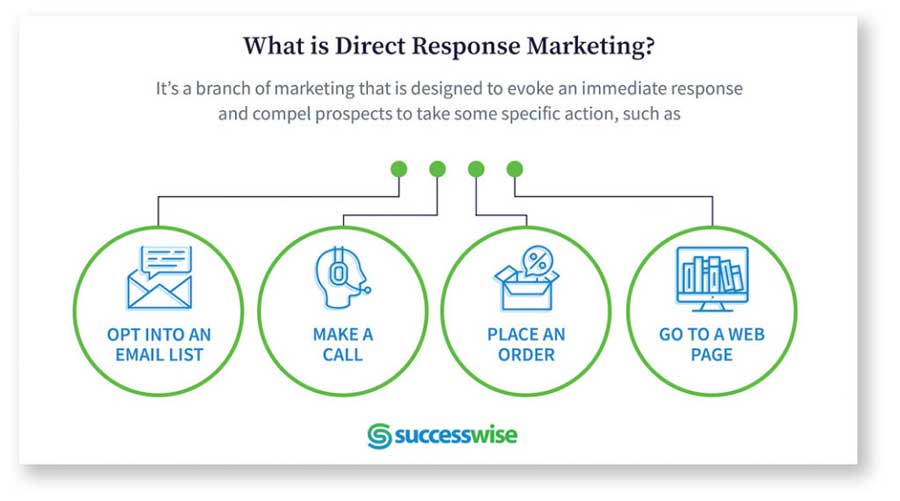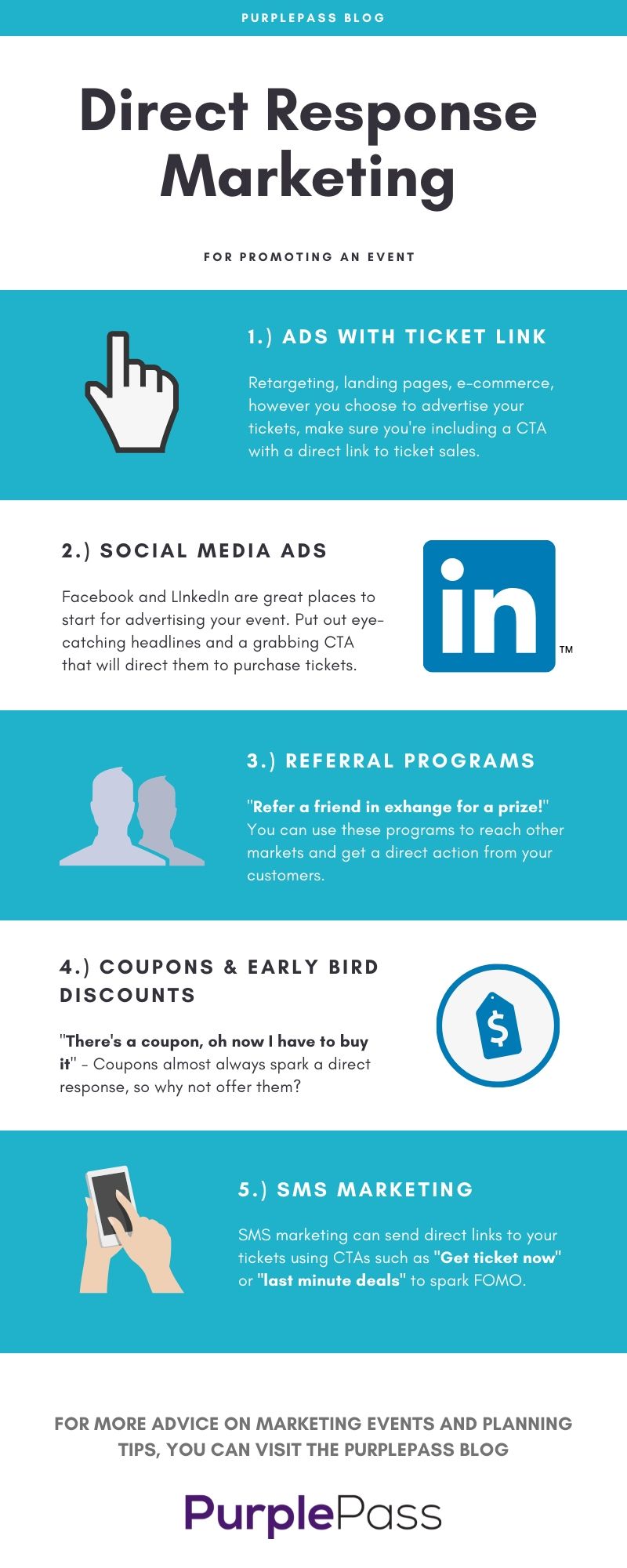Generate More Ticket Sales Using Direct Response Marketing
Outdated outbound marketing methods used to generate interest in events as well as products and services are quickly fading away.
Inbound marketing combined with online content optimized for search engines and direct response marketing have emerged as essential marketing tools for contemporary promoters. In particular, those promoting events find that direct response marketing boosts ticket sales substantially.
Here is a quick look at the magic of direct response marketing and how it works.
The Basics of Direct Response Marketing

Each type of marketing should be geared toward a specific audience. Direct response marketing takes this strategy to the next level.
This marketing method is designed to spur a highly specific response from a prospective customer in a measured manner.
Direct response marketing can take shape in the form of direct mail transmitted by email or the USPS, telemarketing, asking for comments on an article posted to the web or social media and beyond.
In other words, the digital era has made it possible to generate measured responses from target customers without having to resort to traditional outbound ads on TV, radio, billboards, newspapers, etc.
Direct Response Marketing to Promote an Event
Savvy event promoters have been tapping into the power of direct response marketing for quite a while now.
This method of marketing is not an overt pitch to get people to buy tickets to an event. Rather, it covertly touts the merits of the event, subtly encouraging those with even a slight interest to buy one or several tickets.
In particular, direct response marketing is highly effective at pinpointing where leads come from and determining which covert sales approach proves effective and those that are ineffective.
A large part of the appeal of direct response marketing is it is a direct line of communication with target customers. You can easily tabulate the magnitude of the outreach effort and measure the results.
Tweak your direct response marketing effort as necessary with these results in mind and successive campaigns will prove that much more effective.
Whether your direct response marketing takes the shape of emails, online surveys, social media posts or something else, it is imperative you closely track the response to each of these marketing efforts.
Other forms of direct marketing:
- e-commerce ad with CTA
- Follow up workflows (complete your order follow up)
- Discounts/promo codes to act now
- Marketing material (billboards, flyers, etc. all implying to call now)
- Refer-a-friend or share-a-gift campaigns (referral programs)
- Direct mail
- Fear of missing out marketing (FOMO)
-
SMS Marketing
Quantify the outreach as well as the response and you will know exactly how the target audience reacts and responds to each of your direct response marketing campaigns.
This is a stark contrast to more traditional forms of marketing that are comparably challenging to quantify.

The Key Components of Every Direct Response Marketing Strategy
- Include a call to action
- Create a sense of urgency
- How will it benefit them?
(1) Direct response marketing must include a call to action; you want your efforts to lead to something.
Fail to incorporate this essential component in your direct response marketing strategy and you will likely generate considerable interest in your event yet fail to provide potential attendees with the essential “bridge” necessary to make the transition from being interested to actually buying tickets.
The call to action should be somewhat of an explicit sales pitch as this is the opportunity to transform prospects into paying customers. Use the call to action to encourage your target audience to call the ticket office, use a phone app to make a purchase or buy tickets online.
(2) The tone of the direct response marketing effort as well as its call to action should create a sense of urgency.
In other words, this is your opportunity to generate buzz about your event, build excitement for the big day and convert interested parties into paying customers. Carefully choose the words you use in your direct response marketing to ensure the audience understands this is a “must-have” offer or that "tickets are going fast".
If the recipient feels as though there is a sense of urgency to purchase tickets and that failing to make a purchase will lead to him or her missing out on something of value, that target prospect will be more likely to convert into a ticket-buyer.
(3) The solution you suggest (typically in the form of a purchase) must be presented in a manner that benefits the recipient of the direct response marketing material.
Think of the event in question and your direct response marketing effort as mutually beneficial for your business as well as the ticket-buying public. Communicate the merits of the upcoming event in detail in your direct response marketing material so the target audience understands how spending their hard-earned money will benefit them as opposed to your organization.
Clarify the advantages of purchasing a ticket along with the merits of the event and you will be more than pleased with the response to your direct response marketing strategy.








